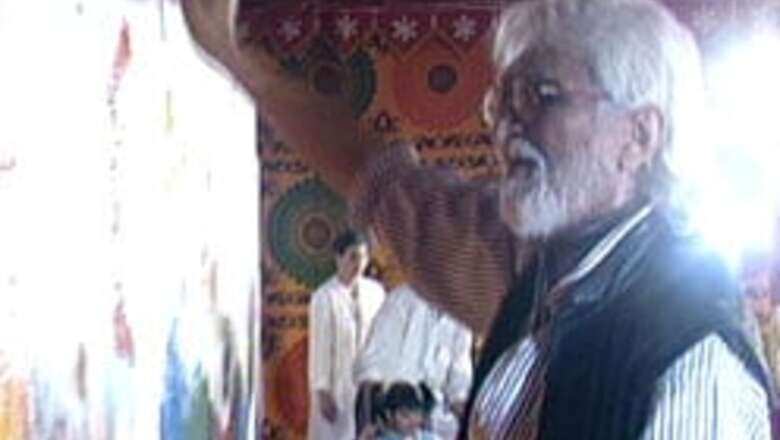
views
New Delhi: It's trouble time for India's most famous painter, M F Husain. His now famous painting Bharatmata is facing censorship.
Husain just can't stop courting controversy, it seems. After facing the ire of the Hindu fundamentalists, he is now drawing Centre's wrath.
His latest painting is under scrutiny by the UPA government. And bureaucrats are also unwilling to give a go-ahead to any public exhibition of this artwork.
There has been apprehension that an exhibition of the painting can spark off communal trouble.
The Union Home Ministry has even alerted the police chiefs of Delhi and Mumbai about his 'objectionable' paintings and asked them to take 'appropriate legal action' if necessary.
The Centre's directive follows a srong observation from the law ministry, which said the 91-year-old painter was insulting the Hindus deliberately.
It is, however, unclear as to why the law ministry went beyond its jurisdiction to do a law-and-order assessment, which should have ideally been done by the Ministry of Home Affairs.
The law ministry's decision has sparked off a debate with the artist community saying that it is a tricky question as to whether Husain invited such measures.
Was Hussain careless or was he carefree? That's the question that has baffled one and all. The Padma Vibhusan recipient has already tendered an apology for the nude painting of Bharatmata, which also landed him in a court battle.
"Provocation comes by instigation. I don't think that provocation comes from art appreciation. Nobody listens to your music and goes to war," says A Ramchandran, an artist.
On his part, Hussain is not new to controversy. His nude Saraswati started off a huge debate a few years back. It even sparked off a huge furore with the fundamentalists going on the rampage.
"This is a debate that will continue for a long time," says Deepak Tandon, an artist.
Yet, the government's move in the present case is seen more as an intervention on an artist's freedom of expression.
The Home Ministry says the immunity in the name of artistic freedom can sometimes cause communal tensions as seen in the aftermath of the global anger generated over the cartoons of Prophet Mohammad, which were first published in Denmark.
(With Sahar Zaman)


















Comments
0 comment